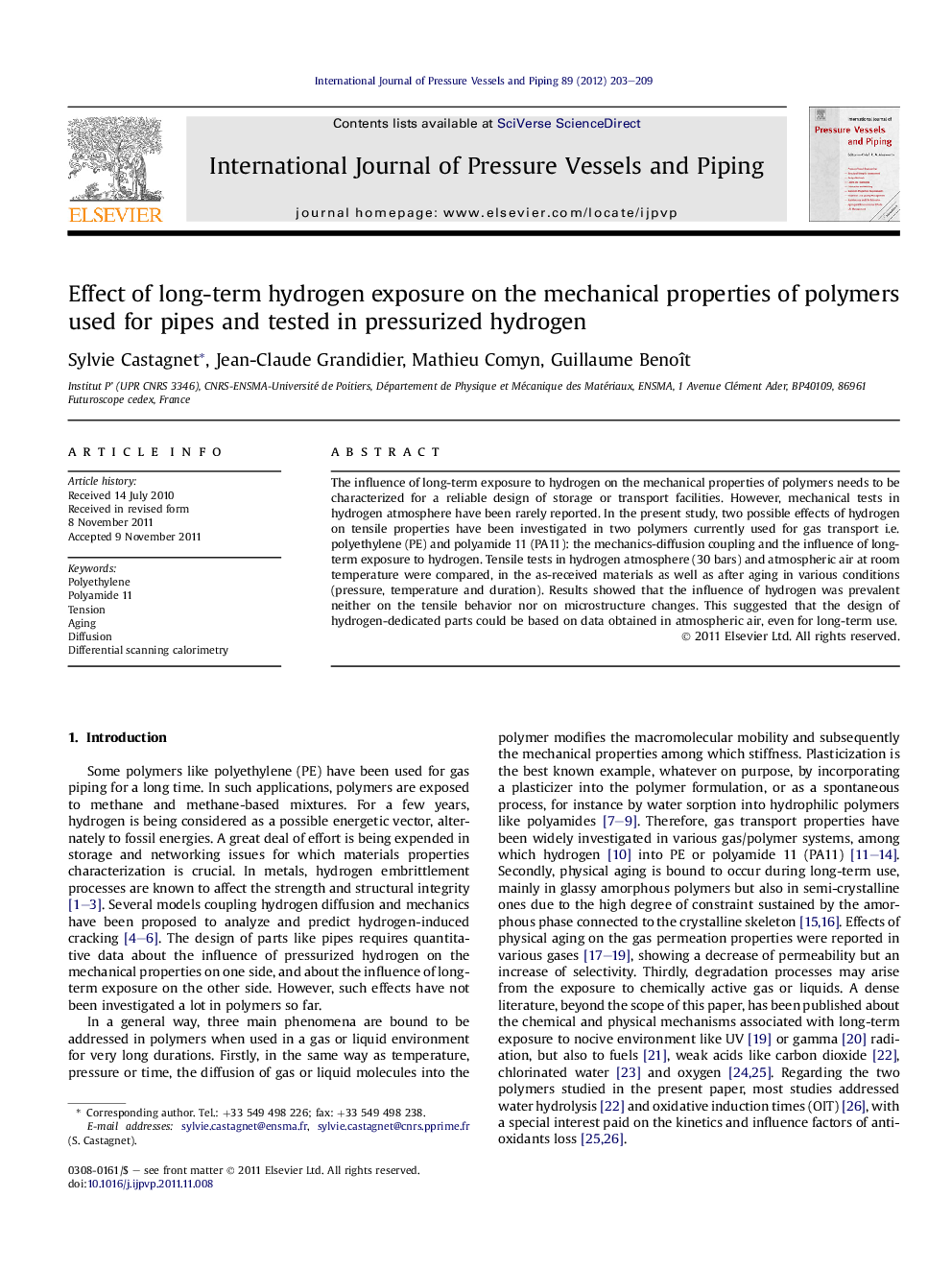| Article ID | Journal | Published Year | Pages | File Type |
|---|---|---|---|---|
| 790773 | International Journal of Pressure Vessels and Piping | 2012 | 7 Pages |
The influence of long-term exposure to hydrogen on the mechanical properties of polymers needs to be characterized for a reliable design of storage or transport facilities. However, mechanical tests in hydrogen atmosphere have been rarely reported. In the present study, two possible effects of hydrogen on tensile properties have been investigated in two polymers currently used for gas transport i.e. polyethylene (PE) and polyamide 11 (PA11): the mechanics-diffusion coupling and the influence of long-term exposure to hydrogen. Tensile tests in hydrogen atmosphere (30 bars) and atmospheric air at room temperature were compared, in the as-received materials as well as after aging in various conditions (pressure, temperature and duration). Results showed that the influence of hydrogen was prevalent neither on the tensile behavior nor on microstructure changes. This suggested that the design of hydrogen-dedicated parts could be based on data obtained in atmospheric air, even for long-term use.
► Coupling between hydrogen diffusion and mechanics was addressed in polymers currently used for piping. ► As-received and 13-month hydrogen-exposed polyethylene and polyamide 11 were tested. ► Tensile tests in pressurized hydrogen and atmospheric air at ambient temperature were compared. ► Microstructure changes during aging were tracked by standard calorimetry. ► The influence of hydrogen was found to be prevalent neither on the tensile behavior nor on microstructure changes.
